You Could Live Longer on the Okinawa Diet—Here’s How to Try it

What we eat not only affects our health, wellness, and fitness, but can seriously impact how long we live. “Longevity, of course, is influenced by many factors,” Dr. Frank B. Hu, a professor of nutrition and epidemiology at the Harvard T.H. Chan School of Public Health,” tells CNBC. “But diet is one of the most important factors that can impact chronic disease risk, mortality and longevity.” While the Mediterranean diet is well-known for its many benefits, researchers are pointing to the Okinawa diet as being one of the best when it comes to enjoying a long, active life. Here’s why.
RELATED: longevity Expert Shares “Power Nine” Traits.
The Okinawa Diet

Dr. Hu recommends a focus on whole, minimally processed plant-based foods, as with the Mediterranean and Okinawan diets. “Those dietary patterns have been shown to reduce the risk of chronic disease like diabetes, cardiovascular disease, some cancers, and also the risk of dementia,” he says. “And because those are the major causes of death. That’s why those healthy dietary patterns have been shown to reduce the risk of premature death and lead to longer life expectancies.”
Craig Willcox, professor of gerontology at Okinawa International University and head of research and co-director of the Okinawa Research Center for Longevity Science, agrees. “If you’re interested in healthy aging, it’s the perfect diet,” Wilcox tells National Geographic. “A lot of these foods turn on FOXO3, the longevity gene, which slows telomere shortening and reduces inflammation.”
Limit Ultra-Processed Foods
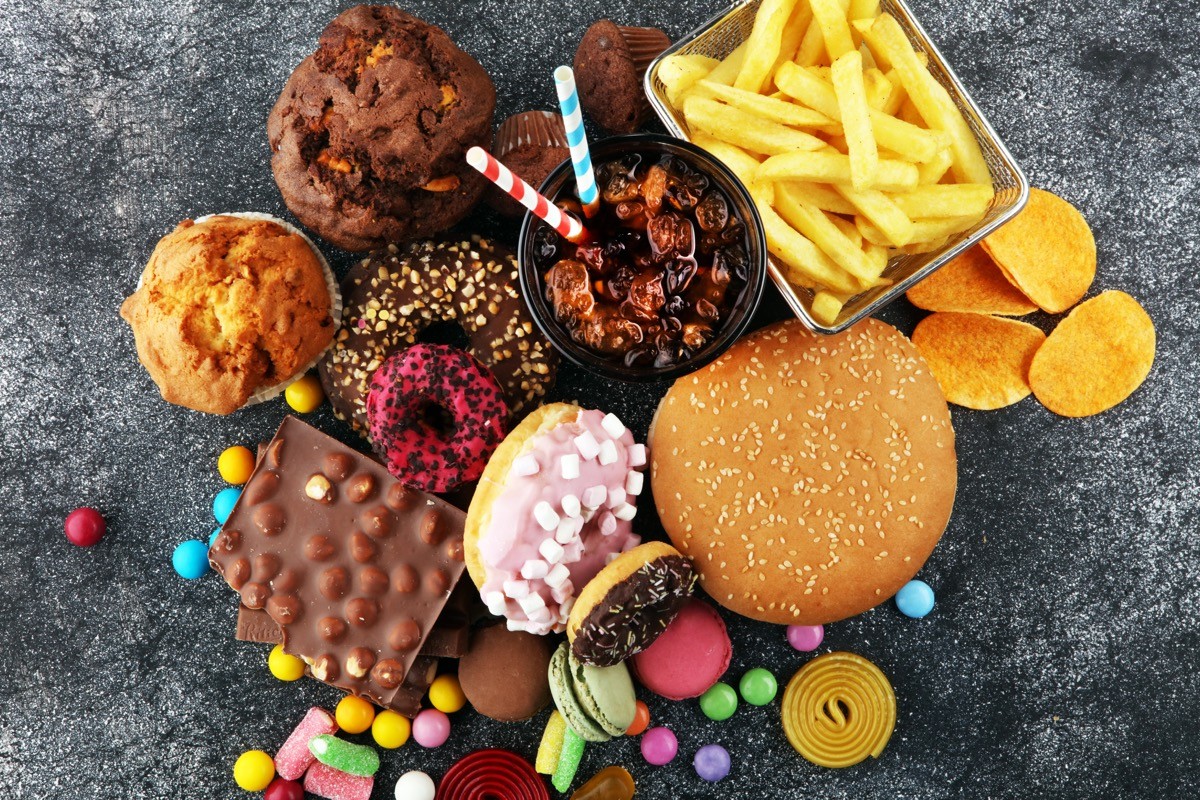
Research shows ultra-processed foods such as sodas, snacks, and sweets are terrible for your health and may shorten your life by more than 10%. “In the U.S. diet, almost 60% of the calories come from ultra-processed foods,” says Dr. Hu. “That’s one of the reasons Americans consume too many unhealthy foods and too many calories.”
Okinawa Diet and Longevity

Okinawa is one of the Blue Zones where people live to a hundred and older, thanks to factors such as lifestyle and the traditional Okinawa diet. “It’s low in calorie density and high in nutrient density and fiber,” Dr. Willcox says. “It’s rich in phytonutrients, including lots of antioxidants. It’s low in glycemic load, and it’s anti-inflammatory… chronic low-grade inflammation at the cellular level drives the aging process and age-related diseases such as heart disease, stroke, diabetes, and cancer.”
Traditional Okinawan Diet Is Plant-Based
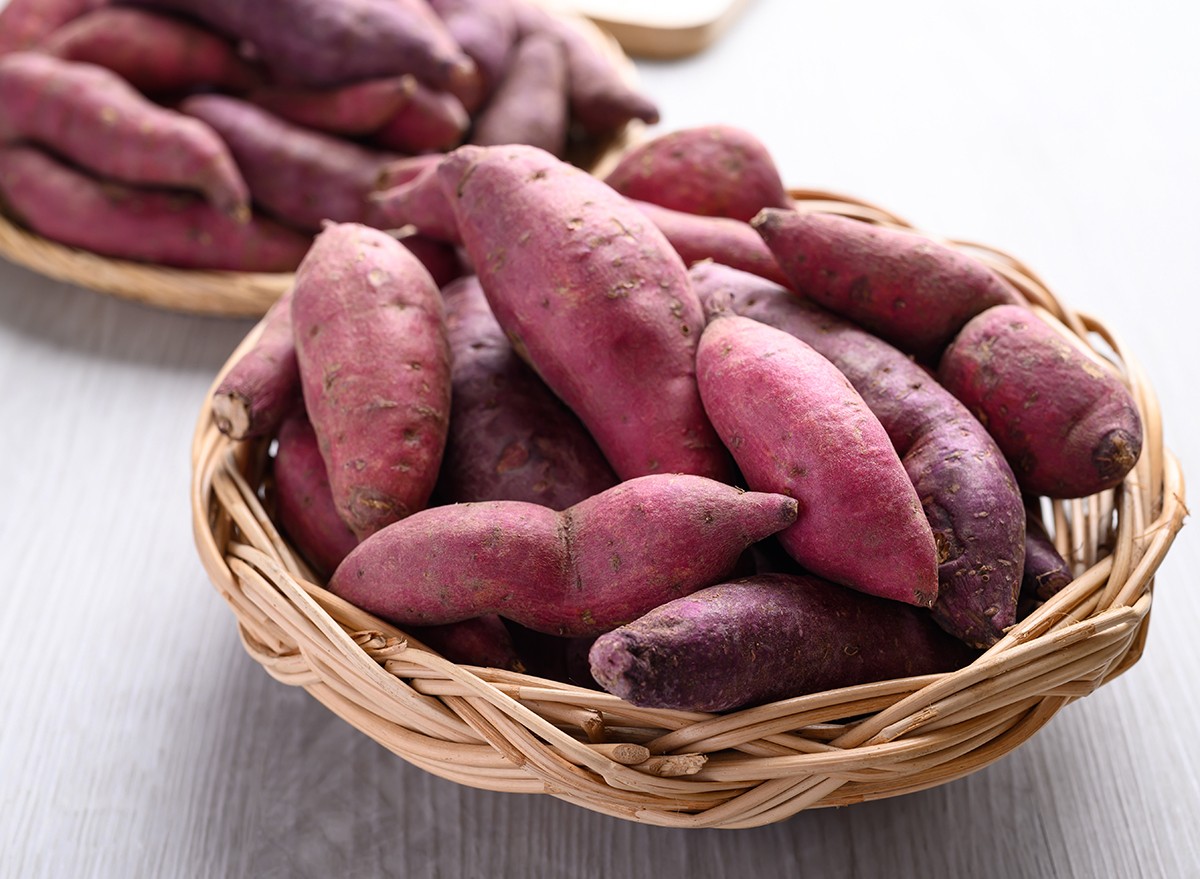
The traditional Okinawa diet is heavily plant-based. “It turns out that it’s whole plant foods, not fish, that make up 90 percent of the traditional Okinawan diet: Less than 1 percent of the diet was fish; less than 1 percent was meat; and less than 1 percent was dairy and eggs,” according to Blue Zones. “Most of the diet was based on vegetables and beans, with the most calories coming from purple and orange sweet potatoes. It’s not only a highly anti-inflammatory diet but also a highly antioxidant one.”
RELATED: longevity Doctor’s Diet and Exercise Secrets.
Okinawan Health
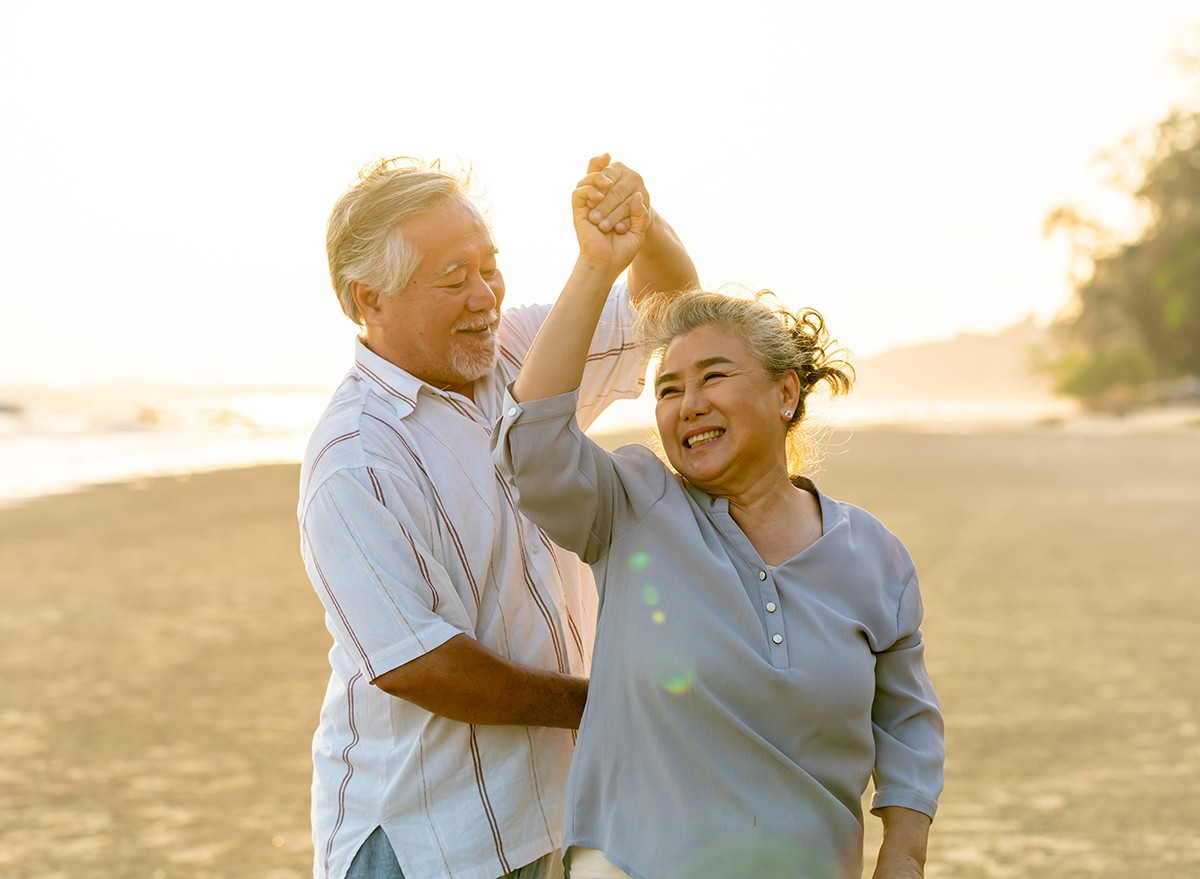
According to Blue Zones, Okinawans who enjoy the traditional diet have:
- 6-12 times fewer heart disease deaths than the United States
- 2-3 times fewer colon cancer deaths than the United States
- 7 times fewer prostate cancer deaths than the United States
- 5.5 times lower risk of dying from breast cancer than the United States
Hara Hachi Bu
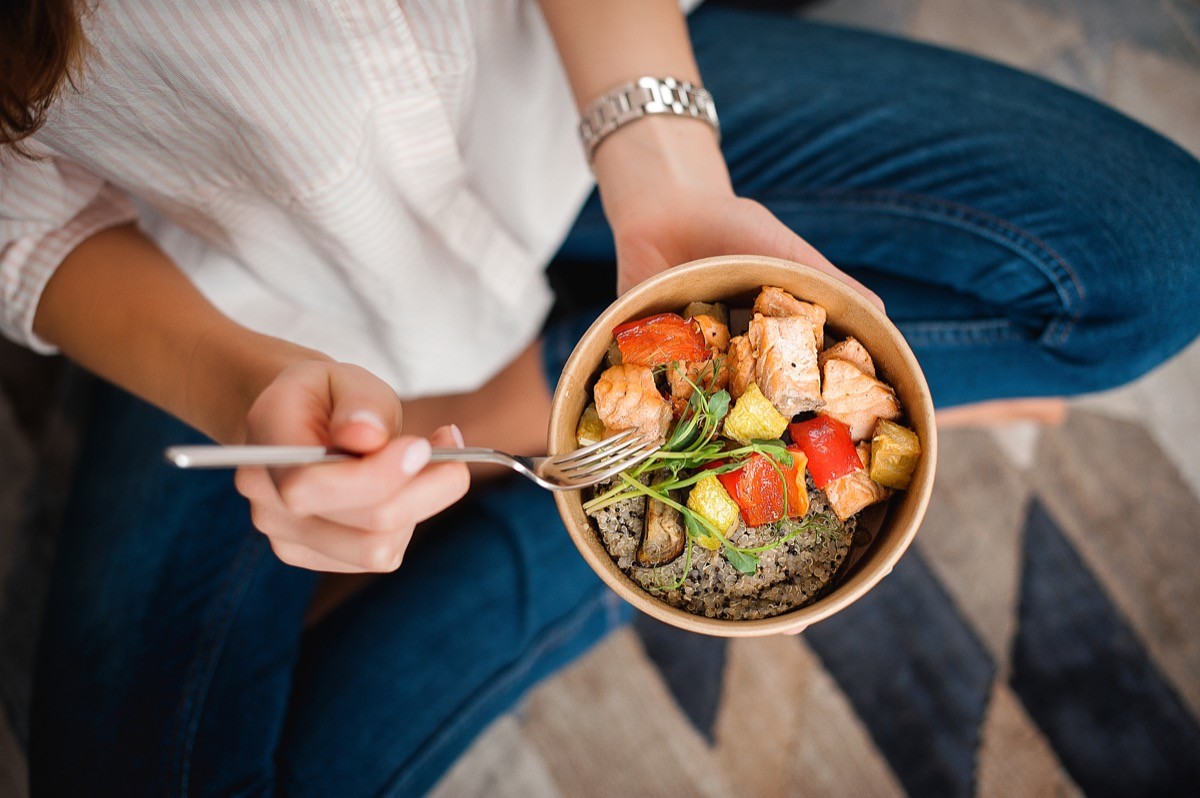
This phrase is a reminder to stop eating when you’re 80% full. “Anyone can make changes to their eating patterns or environment, enjoy food, and learn to eat only until they are 80 percent full,” says Dan Buettner via Psychology Today. “Get started with these easy tips.
- Eat more slowly. Eating faster results in eating more. Slow down to allow your body to respond to cues, which tell us we are no longer hungry.
- Focus on food. Turn off the TV and the computer. If you’re going to eat, just eat. You’ll eat more slowly, consume less and savor the food more.
- Use small vessels. Choose to eat on smaller plates and use tall, narrow glasses. You’re likely to eat significantly less without even thinking about it.”
Real Food, Mostly Plants
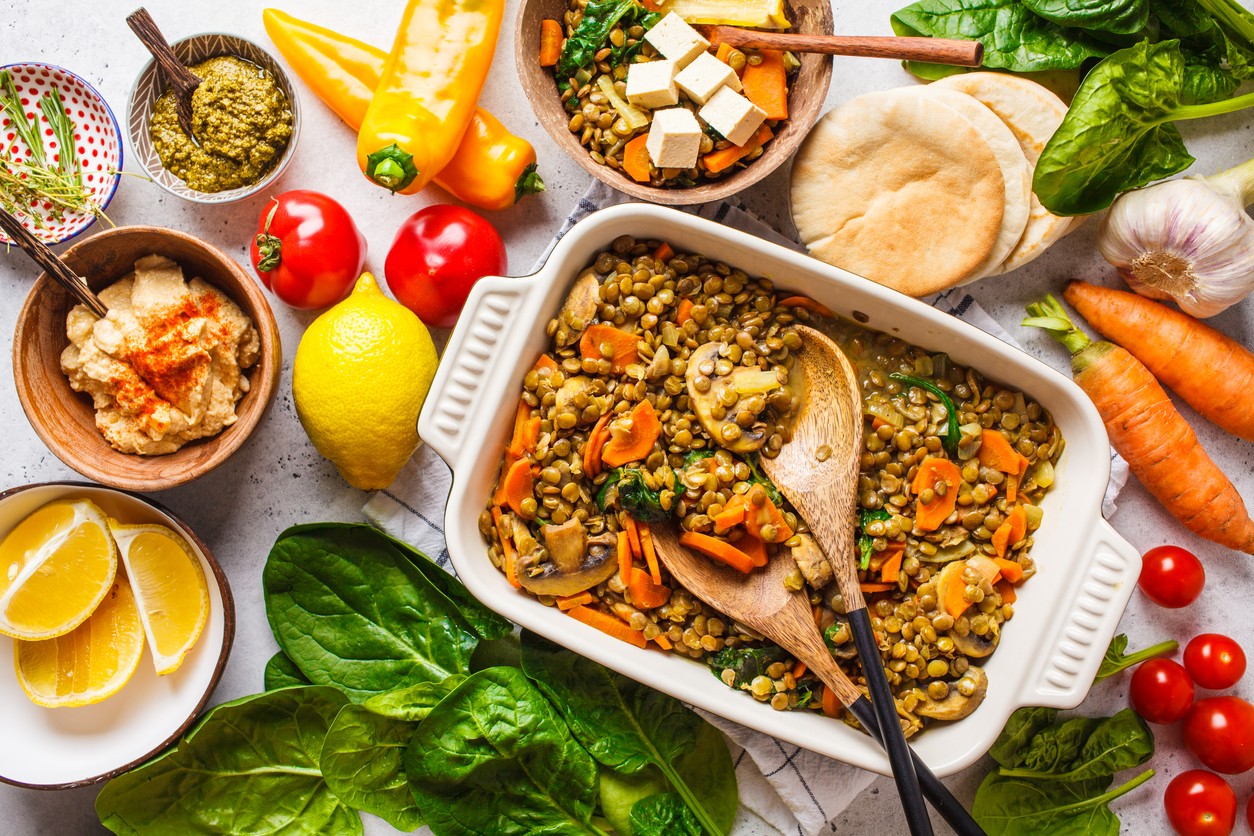
The emphasis on real, whole foods make the Okinawan diet so effective. “It’s a remarkably healthy diet because it adheres to the fundamental theme of healthy eating—it’s real food, mostly plants in a sensible, balanced assembly,” David Katz, a preventive medicine specialist, past president of the American College of Lifestyle Medicine, tells National Geographic. “Optimal nutrition keeps everything working well so that you keep working well. By putting good fuel in the tank, you’re optimizing the engine and you’re essentially detoxing every day.”